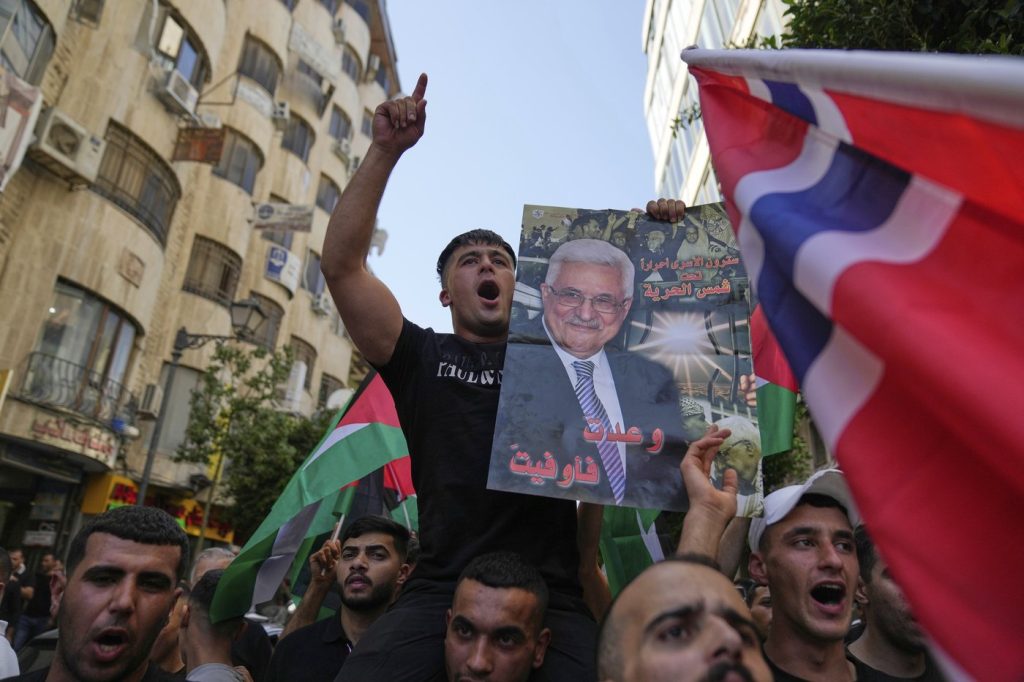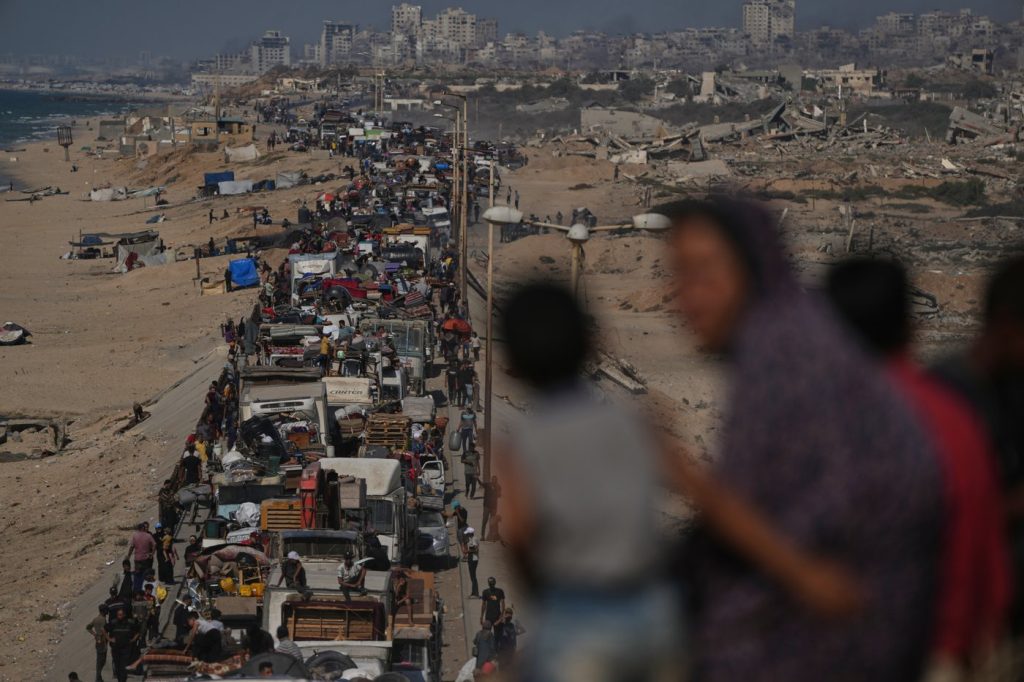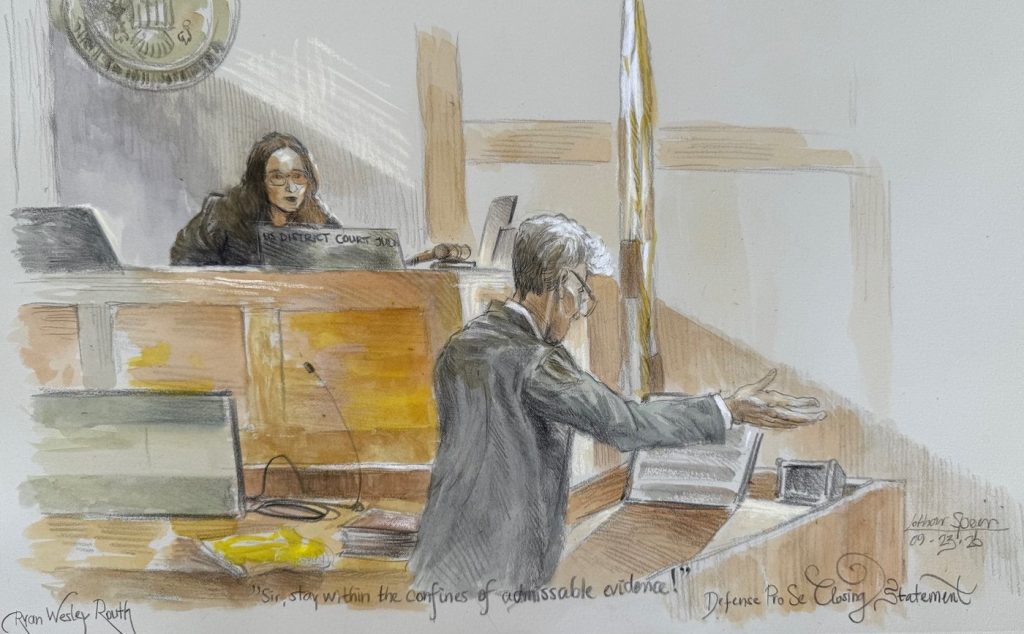DEIR AL-BALAH, Gaza Strip - Palestinians throughout the Gaza Strip and the Israeli-occupied West Bank responded positively to the recent recognition of a Palestinian state by several Western countries, while voicing skepticism regarding the potential impact on their challenging situations. On Monday, countries including France, Andorra, Belgium, Luxembourg, Malta, and Monaco made announcements or confirmations of recognizing a Palestinian state during a significant meeting at the United Nations aimed at promoting support for a two-state solution to the protracted Middle East conflict. This development followed similar recognitions by the United Kingdom, Canada, Australia, and Portugal over the weekend, with more nations anticipated to follow suit, defying Israeli and U.S. opposition.
Saeed Abu Elaish, a medic from the Jabaliya refugee camp in northern Gaza, reflected on how these recognitions enhance Palestinian legitimacy by affirming the rights of the Palestinian people. “It’s also a call to stop the genocide and massacres in Gaza, as well as to halt the settlers’ encroachment on the West Bank,” he remarked. In contrast, Huda Masawabi regarded the recognitions as "worthless," expressing her frustration alongside fellow displaced individuals and vehicles laden with belongings fleeing southern Gaza from Gaza City. “We just hope to God that someone outside would acknowledge us or even treat us as mere human beings,” she stated.
Despite these diplomatic gestures, analysts suggest that substantial shifts are unlikely on the ground, particularly as Israel continues a major military offensive in Gaza City and expands settlements in the West Bank. The long-standing aspiration for a Palestinian state alongside Israel, encompassing the territories seized by Israel in the 1967 Middle East War—namely the West Bank, Gaza, and East Jerusalem—is still considered the only viable solution to the ongoing conflict, which has historical roots extending over a century before Hamas’s recent attack on October 7, 2023.
Israel’s government has consistently opposed Palestinian statehood, arguing that recognition would reward Hamas, which vehemently rejects Israel's existence. Many Israelis fear that a state granted to groups like Hamas may lead to increased hostilities against Israel, particularly given the historical and biblical significance of the West Bank to the Jewish people.
In the dire context of an ongoing war in Gaza, Palestinians expressed that recognition of statehood, while hopeful, offers little comfort. Adeeb Abu Khalid, a displaced individual from Gaza City, emphasized, “What matters to us is that the war stops. Today we are living in famine. People are in misery.” The relentless conflict has devastated Gaza, leaving it in ruins, displacing nearly all residents, and resulting in at least 65,000 deaths, as reported by Gaza's Health Ministry, which is affiliated with the Hamas-led government.
While some displaced individuals like Naser Asaliya find solace in the international recognition, hoping it may lead to positive changes, others remain dubious. “It will, God willing, have a positive impact on us, no matter the circumstances,” he noted. However, Murad Banat, also a displaced Palestinian, asserted that the recent acknowledgments are merely “just talk,” criticizing the perception of their struggles as a spectacle for outsiders to observe.
Palestinians in the West Bank confront a contrasting reality, as Israeli settlers aggressively expand their control over territories, complicating the feasibility of a contiguous Palestinian state. Many locals describe the ongoing Israeli military operations and settler violence as further eroding their hopes for sovereignty. Nur al-Din Mansour, displaced from Jenin, viewed the recent recognitions as a “step in the right direction,” yet clarified that the aim is not merely symbolic but to achieve a sovereign state established along the pre-1967 borders. His sentiments were echoed by Mohammad Hammad, who remarked that recognizing statehood without ending the occupation is ultimately inconsequential, stating, “Everything that’s happening is just ink on paper.”












